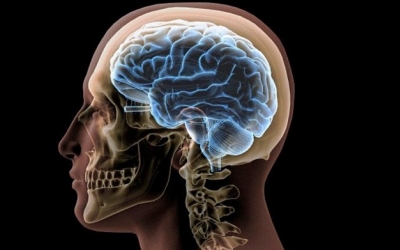- Latest news▼
-
12:16, April 19 Scientists grow human mini-lungs in lab

-
10:23, April 19 JAMA Oncology: Urine test can help rule out high-grade prostate cancer with almost 100% accuracy, study shows

-
18:00, April 18 Daily Mail: Elderly woman in China gets infected with brain-eating amoeba

-
14:19, April 18 Obesity: exercising before breakfast helps you lose weight faster

-
10:42, April 18 The Conversation: childhood trauma can cause pathological hoarding

-
08:37, April 18 Daily Mail: Satiating food reduces cravings for sweets, nutritionist says

-
18:22, April 17 First Armenian-German Conference entitled “Heart Failure Spring School”

-
08:38, April 17 Why do kids usually recover from COVID-19 more easily than adults?

-
14:37, April 16 Daily Mail: intermittent fasting is not suitable for children and women before their periods

-
16:41, April 15 Cell: in carriers of defective BRCA2 gene, sugar consumption increases cancer risk

-
15:04, April 15 305 cases of measles recorded in Armenia so far in 2024

-
14:38, April 15 Food and Environmental Virology: tea contributes to effective coronavirus control

-
12:41, April 15 Daily Mail: vitamin A, B3 and E supplements can be dangerous

-
10:56, April 15 Diabetes Care: evening physical activity is good for the heart

-
08:27, April 15 Women are more susceptible to blood loss and death during bypass surgery than men, researchers say

All materials
How having a stroke can affect patients' judgement

Stroke could affect patients' moral compass, altering they way they think about mistakes and people's intentions, a new study has found.
Scientists in Buenos Aires found those victims who suffered a stroke affecting the frontal region of the brain were more likely to forgive, as long as no actual harm was done, Daily Mail reported.
The study concluded the effect on moral judgement was similar to those patients diagnosed with frontotemporal dementia (FTD).
It found the stroke patients placed more emphasis on the outcome of a situation, focusing less on what a person's intentions were.
Researchers compared eight patients who had suffered stroke in the frontal region of the brain, and 19 patients believed to be suffered frontotemporal dementia, and an equal number of healthy, control patients.
None of the study participants had been diagnosed with any other psychiatric disorders, neurological diseases or had suffered brain damage.
They were presented four different scenarios.
They involved no intended or actual harm, accidental harm, unsuccessfully-attempted harm, and successfully-attempted harm.
Both those patients who had suffered a stroke or had FTD rated the scenario in which harm was intended but not actually caused as more acceptable, than the control group.
Follow NEWS.am Medicine on Facebook and Twitter
- Read also
- Event calendar
- Archive
- Most read
month
week
day
- WHO: Nigeria pioneers revolutionary meningitis vaccine 1185
- One-third of women experience menstruation-related migraines, most often during premenopause - study 1174
- Daily Mail: vitamin A, B3 and E supplements can be dangerous 1035
- Food and Environmental Virology: tea contributes to effective coronavirus control 1027
- Cell: in carriers of defective BRCA2 gene, sugar consumption increases cancer risk 1000
- 305 cases of measles recorded in Armenia so far in 2024 992
- Women are more susceptible to blood loss and death during bypass surgery than men, researchers say 970
- Diabetes Care: evening physical activity is good for the heart 926
- Daily Mail: intermittent fasting is not suitable for children and women before their periods 810
- First Armenian-German Conference entitled “Heart Failure Spring School” 590
- Why do kids usually recover from COVID-19 more easily than adults? 481
- Obesity: exercising before breakfast helps you lose weight faster 479
- The Conversation: childhood trauma can cause pathological hoarding 476
- Daily Mail: Elderly woman in China gets infected with brain-eating amoeba 458
- Daily Mail: Satiating food reduces cravings for sweets, nutritionist says 455
- Find us on Facebook
- Poll









